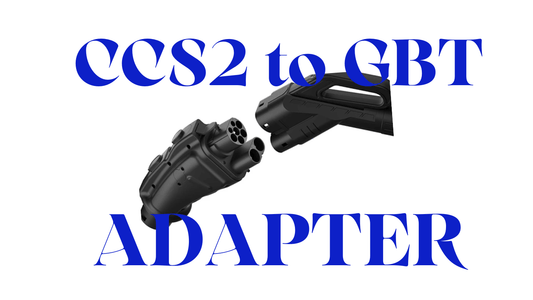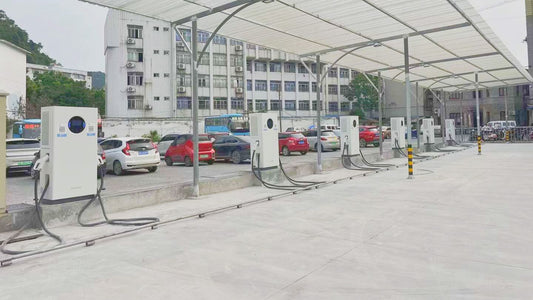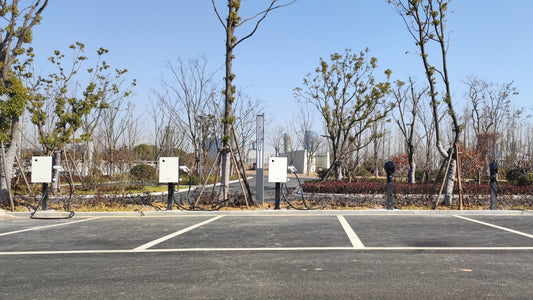Fast DC charging is an important component of the overall charging infrastructure, supporting the growth and acceptance of electric vehicles as a viable transportation option.
Here're some reasons:
Reduced charging time: Fast DC charging enables EVs to recharge their batteries at a much higher power level than traditional AC (Alternating Current) charging. This significantly reduces the charging time, making it more convenient for drivers on long journeys or with limited charging opportunities.
Extended driving range: The availability of fast DC charging networks allows EV drivers to access charging stations along highways or in urban areas, enabling them to travel longer distances without worrying about running out of battery power. It helps address range anxiety, a common concern for potential EV owners.
Enabling long-distance travel: Fast DC charging networks create a charging infrastructure that supports long-distance travel for EVs. It allows drivers to quickly recharge their vehicles at designated stations, similar to refueling at gas stations for conventional cars.
Increasing adoption of EVs: The convenience and accessibility of fast DC charging contribute to the wider adoption of electric vehicles. It eliminates one of the barriers to entry for potential EV buyers by providing a reliable and efficient charging solution.
Future-proofing technology: As battery technology improves, the charging speeds of fast DC charging are likely to increase further. Investing in fast DC charging infrastructure ensures compatibility with future EV models that can take advantage of even higher charging rates.
Flexibility in charging options: Fast DC charging complements other charging options, such as home charging or workplace charging, by providing a fast and convenient option for on-the-go charging needs. It offers flexibility for EV owners who may not have access to home charging or need a quick recharge during their busy schedules.
But, does DC fast charging damage the vehicle’s battery? Most of EV drivers are really concerned about this.
Fast charging can have some impact on your car battery's lifespan, but the extent of the impact depends on several factors.
Heat generation: Fast charging typically generates more heat compared to regular charging. Excessive heat can degrade the battery's performance and shorten its lifespan. However, modern electric vehicles (EVs) and plug-in hybrid electric vehicles (PHEVs) have built-in thermal management systems to mitigate this issue.
Battery chemistry: Different EVs use different battery chemistries, such as lithium-ion or nickel-metal hydride. Lithium-ion batteries, which are more commonly used in modern EVs, are generally better suited for fast charging than other chemistries.
Battery management system (BMS): The BMS in your car is responsible for monitoring and controlling the charging process. It helps regulate factors like voltage, temperature, and current flow to protect the battery. A well-designed BMS can optimize charging to minimize potential harm.
Charging frequency: Fast charging on occasion is unlikely to cause significant harm to your battery. However, repeated and frequent use of fast charging may accelerate battery degradation over time.
To maximize the lifespan of your car battery, it's generally recommended to use a combination of regular and fast charging. Regularly relying solely on fast charging may have a slightly negative impact on the battery's overall health. It's also advisable to avoid letting the battery charge level drop too low frequently, as it can strain the battery when you need to recharge rapidly.
Overall
Modern EVs and PHEVs are designed to handle fast charging, but it's still important to follow the manufacturer's guidelines and use fast charging as needed rather than as the primary charging method.




